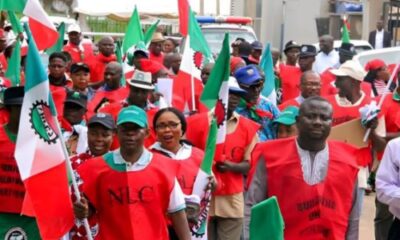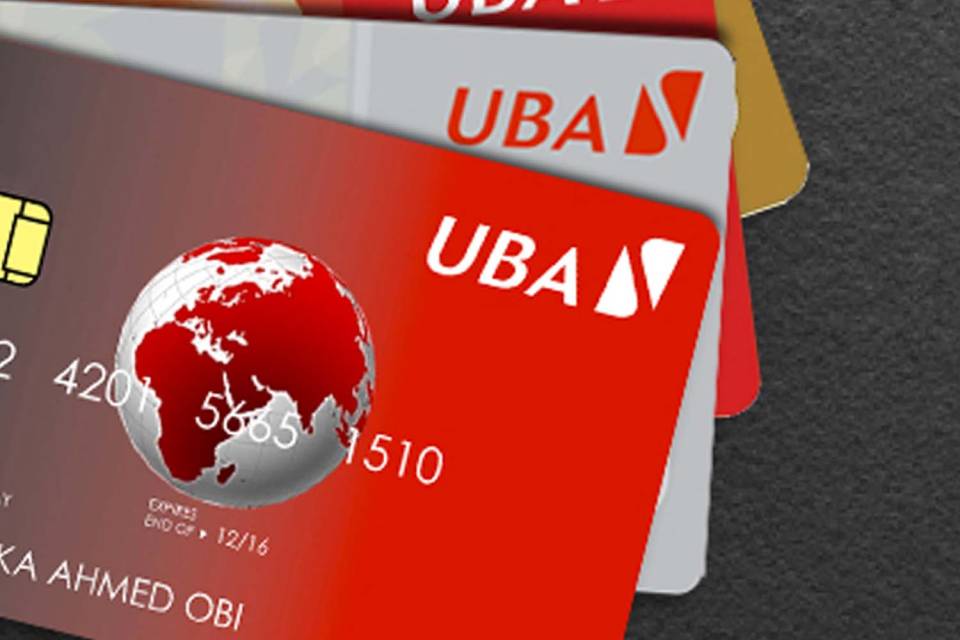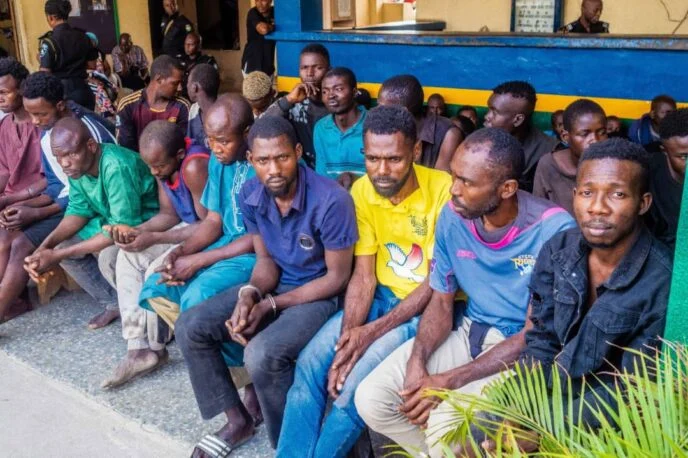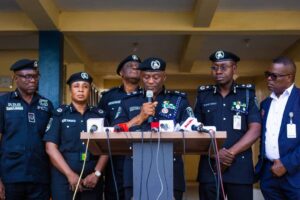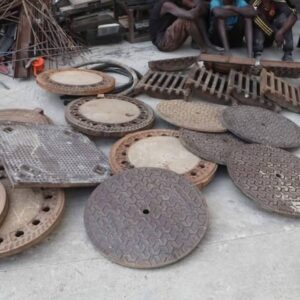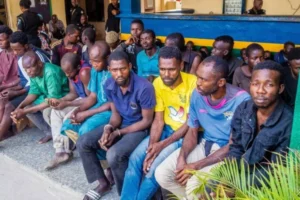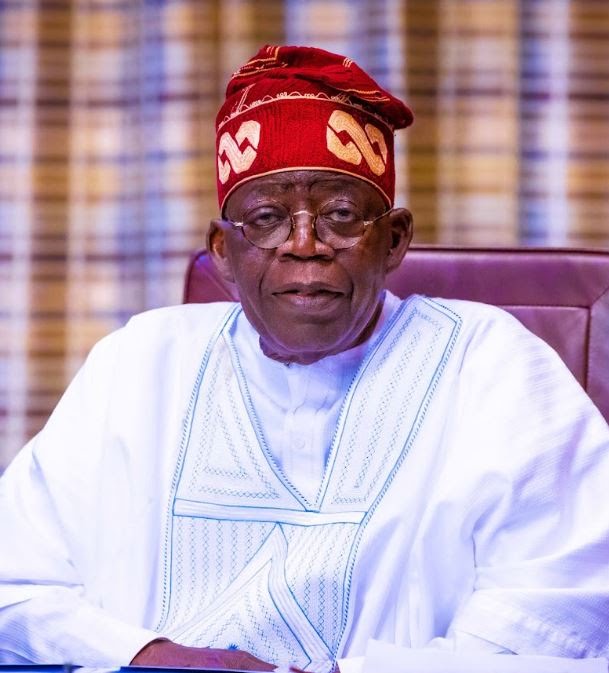President Bola Tinubu has approved a retirement package for service chiefs and generals, including $20,000 for foreign medical treatment, bullet-proof SUVs, cooks, and other benefits, which have been criticized by the Nigerian Medical Association, the Medical and Dental Consultants Association of Nigeria, and the Nigerian Association of Resident Doctors.
Under the Harmonised Terms and Conditions of Service for Officers and Enlisted Personnel in the Nigerian Armed Forces, signed by President Bola Tinubu on December 14, 2024, the Chief of Defence Staff and other service chiefs are entitled to a bulletproof SUV or its equivalent as part of their retirement benefits.
The vehicle will be replaced every four years and maintained by the military. Additionally, a Peugeot 508 or an equivalent vehicle will be provided as a backup.
The retired generals will also enjoy a range of other luxurious benefits, including domestic aides and residential guards upon retirement.
While those who retire as lieutenant generals and their equivalents will enjoy international and local medical treatment worth up to $20,000 annually, the benefits for the CDS and the service chiefs were not specified, but it is believed that theirs would be significantly higher.
In addition, they will be assigned a special assistant or personal assistant, three service drivers, and a service orderly, with escorts provided as necessary by relevant military units.
Also, each retiring service chief will also be provided with five domestic aides, comprising two service cooks, two stewards, and one civilian gardener, along with an aide-de-camp or security officer.
The HTCOS read, “Retirement benefits for CDS and Service Chiefs: The following benefits shall be applicable: One bullet-proof SUV or equivalent vehicle to be maintained by the Service and to be replaced every four years. One Peugeot 508 or equivalent backup vehicle.
‘’Retention of all military uniforms and accoutrement to be worn for appropriate ceremonies; five domestic aides (two service cooks, two stewards and one civilian gardener); one Aide-de-Camp/security officer; one Special Assistant (Lt/Capt or equivalents) or one Personal Assistant (Warrant Officer or equivalents); standard guard (nine soldiers).
“Three service drivers; one service orderly; escorts (to be provided by appropriate military units/ formation as the need arises); retention of personal firearms (on his demise, the personal firearm(s) shall be retrieved by the relevant service) and free medical cover in Nigeria and abroad.”
For other senior officers such as lieutenant generals and equivalents, they are entitled to two Toyota Hilux vehicles or one Toyota Land Cruiser, along with $20,000 annual medical treatment, two cooks, two stewards, four residential guards and two drivers.
The document stated, “Lieutenant generals and equivalents will receive two Toyota Hilux vehicles or one Toyota Land Cruiser, along with $20,000 annual medical treatment, two cooks, two stewards, four residential guards, and two drivers.
“Retirement benefits for lieutenant general/equivalents. The following benefits shall be applicable: Officers of three-star rank. Two Toyota Hilux Vehicles or one Toyota Land cruiser or equivalent jeep of the same value; two Cooks; two Stewards; four residential guards; one service orderly; two service drivers and free medicals in Nigeria and abroad to the tune of $20,000 per year.”
The Federal Government also approved for major generals and brigadier generals a Toyota Land Cruiser or equivalent, $15,000 annual medical treatment, domestic staff, and residential guards.
One-star officers are expected to receive $10,000 annually for medical care, a Toyota Camry or equivalent and similar domestic and security arrangements.
The HTCOS further read, “For major-generals/brigadier-generals and equivalents, the following benefits shall be applicable: One Toyota Land Cruiser or equivalent car of the same value.
“One cook; One steward, two residential guards; One service orderly; One driver; Free medicals in Nigeria, and abroad to the tune of $15,000 per annum.
“Officers of One-Star rank (Brig. Gen.): One Toyota Camry or equivalent car of the same value; One service driver; two residential guards; One orderly and free medicals in Nigeria and abroad to the tune of $10,000 per annum.’’
Colonels and their equivalents are to get a Toyota Corolla or its equivalent and free medical care within Nigeria.
The President of the NMA, Prof Bala Audu, emphasised that any retirement benefits received by government officials should be invested within Nigeria.
Speaking on the upgraded perks for the military brass, the NMA president noted, “If they want to give them government-benefited medical treatment, cooks, or whatever, I think they should give them all their benefits in Nigeria, that is what I believe.’’
“Whoever wants to receive benefits, whether service chiefs or Mr. President, it should be in Nigeria, and not abroad,’’ he insisted.
President of MDCAN, Prof Muhammad Muhammad, demanded that the Nigerian healthcare system should be transformed to cater to Nigerians’ healthcare needs.
“My main concern is not what they are giving, but the fact that it is made official that the medical treatment has to be abroad. When, in fact, in most situations, when they go out, it’s Nigerian doctors that they are going to meet. So, in that situation, we need to make sure they are taking good care of the Nigerian healthcare providers,’’ he said.
He added that the decision to make provision for foreign treatment for the retired officers signalled a lack of confidence in the local health sector.
“This also means that the government does not have confidence in the Nigerian healthcare system. So, they have to make sure that whatever level of care they receive abroad, we also have it in Nigeria because that is what is going to make Nigerians continue to have confidence in the healthcare system and the healthcare providers in Nigeria. So, my main concern is not what was allocated, but the fact that it is made official that the treatment will be abroad.
“That means the government itself is not comfortable and is not happy with what is available in the Nigerian hospitals for the care of Nigerians,” he added.
While acknowledging that the retirement package for service chiefs, judges, and politicians is not new, the medical expert insisted that the well-being of Nigerians and healthcare professionals should also be prioritised.
“And then likewise, they need to increase budgetary provisions to upgrade our hospitals and other healthcare institutions and training centres so that Nigerians who may not necessarily have to go out of the country will be able to get the requisite healthcare service that they require,” he recommended.
On his part, NARD president, Dr Tope Osundara, noted that medical tourism is the bane of the health sector, stressing the need to address it urgently.
“The treatment they go abroad to get can be gotten here in Nigeria. Besides, what is stopping the government from providing state-of-the-art equipment in our hospitals or upgrading the hospitals?
“It’s not like we don’t have Nigerian doctors who can do some of the things they travel abroad to do, but unfortunately, rather than prioritise our health system, equip the hospitals and make it efficient, we would rather spend the money elsewhere, thereby improving their economy.
“We should rather pump money into our health system, and this money will find a way to circulate. By the time you are pumping money into it, and people are taking advantage, it will give a return on investment. But it seems that the focus of the government is elsewhere rather than majoring on what is essential in Nigeria.
“I appreciate the Coordinating Minister, Prof Muhammad Pate, who is also trying to do everything they can to improve the health system, but there is a limit to what a minister can do.
“We need a paradigm shift concerning reforms in the health sector. It still lies with the executive arm of government to ensure that the priorities are not focused on medical treatment abroad, but we should internalise treatment and make it local,” he said.
The Country Director, Accountability Lab Nigeria, Friday Odeh, described the development as “alarming”, noting the hardship faced by Nigerians, adding that the extravagant retirement benefits raised concerns about the priorities of the government.
He also questioned whether the service chiefs had done enough to deserve the packages while calling on the citizens to challenge such policies.
Odeh stated, “It is alarming that service chiefs are set to receive $20,000 for foreign medical treatment, bullet-proof SUVs, and personal staff as part of their retirement package. At a time when Nigeria faces economic hardship, such extravagance raises serious concerns about the government’s priorities.
‘’Millions of Nigerians struggle with poverty and failing public services, yet resources are being funnelled into luxuries for a select few. Does Nigeria truly have this kind of money to play around with?”
Odeh queried the wisdom behind the retirement perks citing the inability of the armed forces to address the insecurity plaguing the country.
He added, “The justification for these perks is questionable. For over 12 years, insecurity has ravaged the country, with insurgency, kidnapping, banditry, and violence leaving a trail of destruction. While there have been some gains, they are uneven and insufficient.
‘’Have the service chiefs done enough to deserve such packages, especially when insecurity persists in many regions in a country where military procurement details are never public and allegedly, corruption sits deep in these budgets?
“This policy reflects deeper issues in governance. It sends a troubling signal that public resources can be lavishly spent on elites, regardless of performance.
“Citizens and the media must challenge such policies that always hide behind national security, and demand a focus on the greater good. While insecurity has marginally reduced in some areas, it is far from enough to justify rewarding leaders with excessive perks,” he stated.
The Executive Director of the Rule of Law Advocacy and Accountability Centre, Okechukwu Nwaguma, pointed out that the retirement benefits reflected “a troubling disconnect between government actions and the realities faced by citizens”, adding that the justification for such perks was questionable.
He noted, “The Nigerian government’s decision to grant excessive retirement perks to military leaders amid the current economic hardship reflects a troubling disconnect between government actions and the realities faced by citizens.
“It raises significant concerns regarding government prioritization and fairness. The lavish retirement benefits of military leaders contrast sharply with the struggles faced by the majority of citizens dealing with insecurity, unemployment, and inflation.
“This disparity can deepen public disenchantment with the government, as it appears more focused on rewarding elites than addressing the needs of ordinary people.”
Nwaguma said the decision may reinforce the perception that the Tinubu government favoured elite interests, fostering public alienation.
“It raises questions about the fairness of resource allocation during times of crisis. This situation highlights the need for improved governance that reflects the will and welfare of the people. Citizens expect their leaders to demonstrate empathy and responsibility.
“For lasting stability and public trust, the government should align its policies with the socioeconomic realities of the populace and prioritise security and social welfare initiatives,” he added.
Credit: The Punch

 BIG STORY2 days ago
BIG STORY2 days ago
 BIG STORY2 days ago
BIG STORY2 days ago
 BIG STORY4 days ago
BIG STORY4 days ago
 BIG STORY1 day ago
BIG STORY1 day ago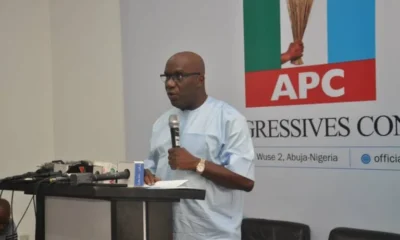
 BIG STORY4 days ago
BIG STORY4 days ago
 BIG STORY4 days ago
BIG STORY4 days ago
 BIG STORY4 days ago
BIG STORY4 days ago
 BIG STORY9 hours ago
BIG STORY9 hours ago











